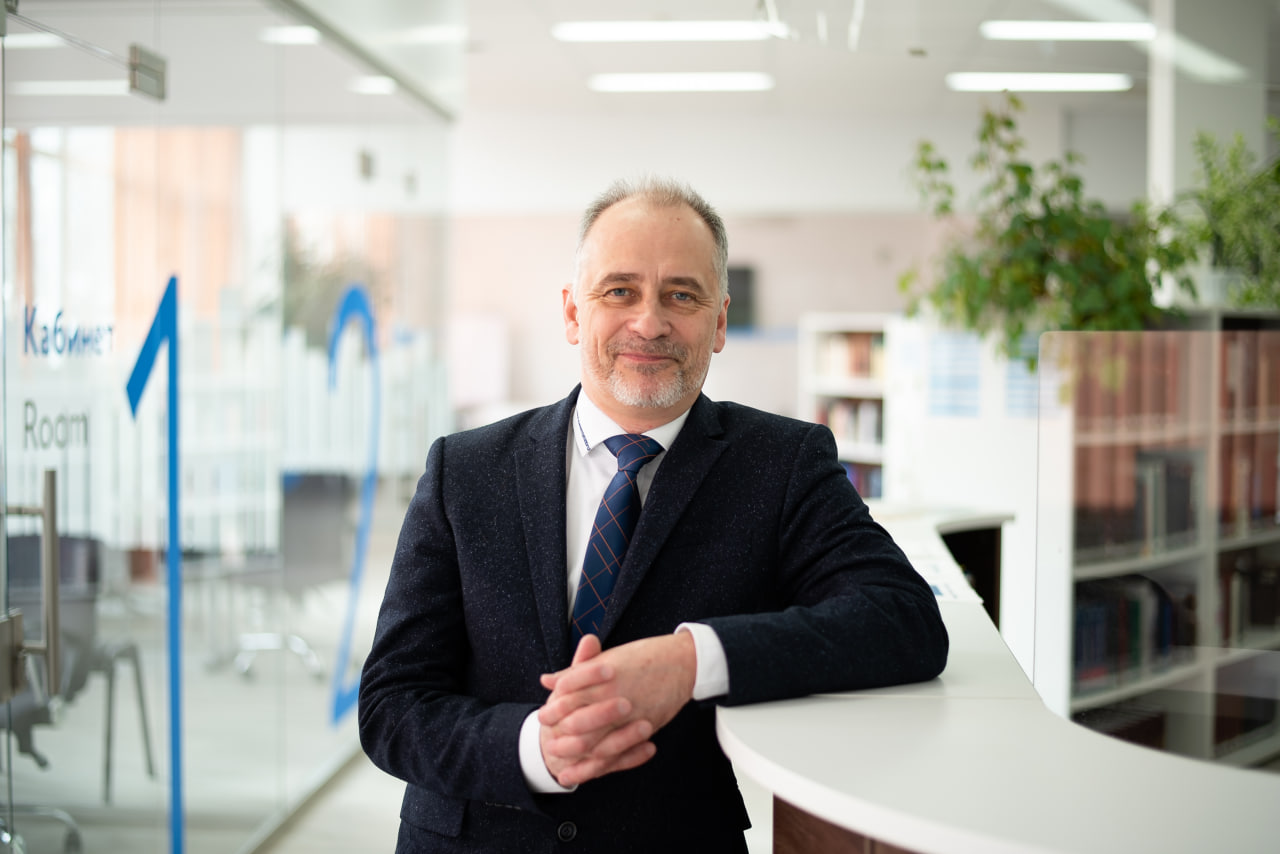Day of Knowledge wishes to international students from Vice-Rector for Internal Affairs Professor Artyom Rykun

— The fall always symbolized huge agricultural opportunities everywhere. In the traditional world, about 95% of the population were engaged in that sort of activities. There were very few exceptions, the oldest and the most traditional one being priests and other people associated with monasteries and religious service. Gradually, in medieval Europe, there emerged another breed of people who didn’t have to do anything with agriculture when the fall started, because they were at universities. They started Latin there and some free arts and those gradually grew into what we call an academic world.
Today young people engaged in academic activities are probably the majority of the population everywhere, including the countries that are not exactly academic and not exactly industrial, but still most of the young generation when they reach a certain age, will become teenagers and be told they are going to be engaged in academic activities.
In the 1960s, the proportion of these people grew so big that everywhere in Europe, in the United States, in Russia, in Japan, Korea, universities and colleges were built to keep young people from entering the labor market, because there were too many of those. The idea was to keep them somewhere to build something like a “refrigerator” for them, to have them there just for a while before they entered the labor market.
That was how young culture, counterculture and other things like hippies and other young generation products developed. The whole idea of young people as a separate group of population with their own beliefs, interests, music, fashion, ways of seeing the world was fully developed in the 1960s and the 1970s.
As an unexpected by-product, they proved a beneficial and a contributing force for the society. Lots of what was later called creative class-oriented activities, pro-creative class, all these developed within the academic services at the universities that formed clusters like Palo Alto and Berkeley.
So around this area, a special new type of society appeared. Later from that sort of areas, the post‑industrial world order and new economics, new industries, innovative high tech, information technology, communication, new types of financial activities and institutions developed—all from higher education, which in the early medieval ages was weird and affected a very small part of the population and culture.
Nobody notices today that academics are actually quite rare in terms of true motivation and true productivity. So when you spend time here at the university, it doesn't mean you necessarily are driven and oriented towards impact and activities beneficial for yourself. You might attend lectures, you might attend classes, but mentally you might not be present. However, if you are here on purpose, if sitting at the lecture, you are listening, you are asking questions, you are active in the seminars, you are attending workshops, maybe not from the first year, but from the second year, you end up having a focused interest. This will be your road to success, because we do see the difference when third-year students are still in doubts. They do not know what to do next and they still do not understand what's going on around them.
However, there are those who can choose between types of jobs that are already available for them. They are absolutely 100% confident they will be well-employed in financial terms, in terms of how exciting and involving their jobs will be.
And since you are here, you’ve made all the efforts already. You got from another country here, you traveled, you collected and raised funds to make it here. You know at least two languages, some of you know three languages, like Indonesians, because you have your regional, bahasa, and English. And Russian now! You are by definition more motivated than the average!
I do advise you to use this time to use each other, the university, your teachers, the walls around you, the library, our labs for better, because there are lots of resources. If you are motivated to make the most of it here, you'll achieve it and you'll be appreciated and you will appreciate the results.
Good luck and remember that spring comes after the winter, which comes after the fall, and better times are ahead of us!